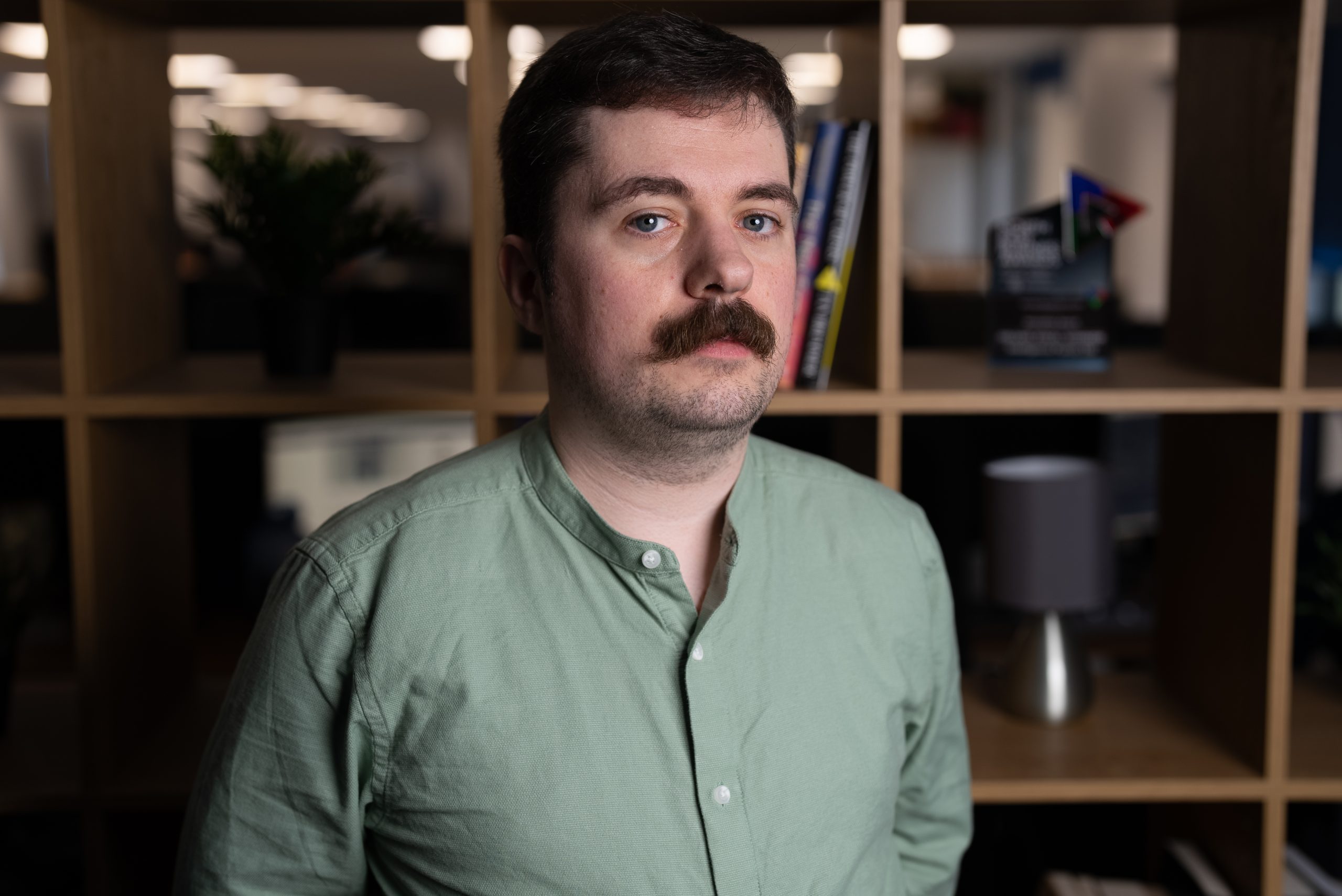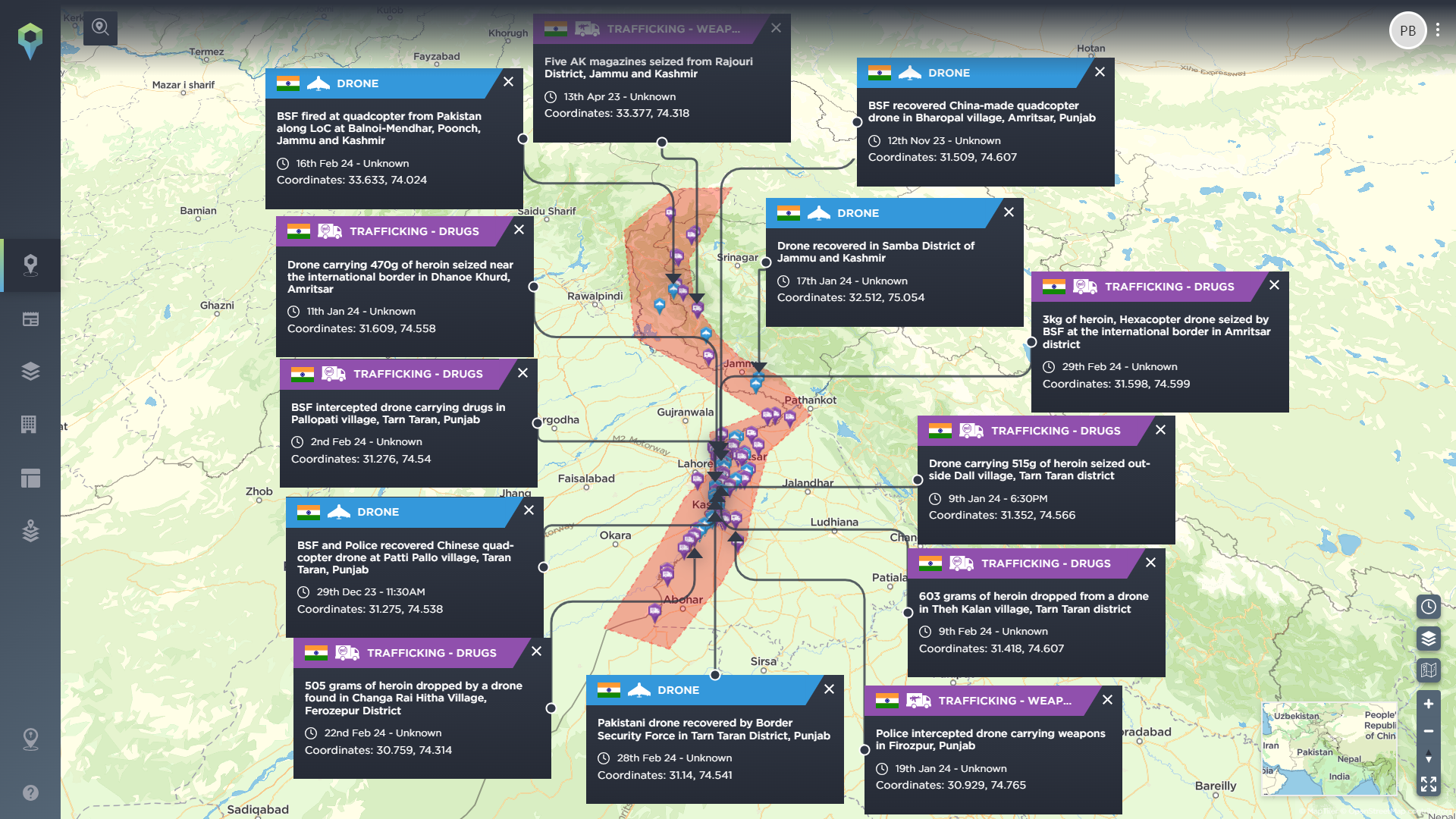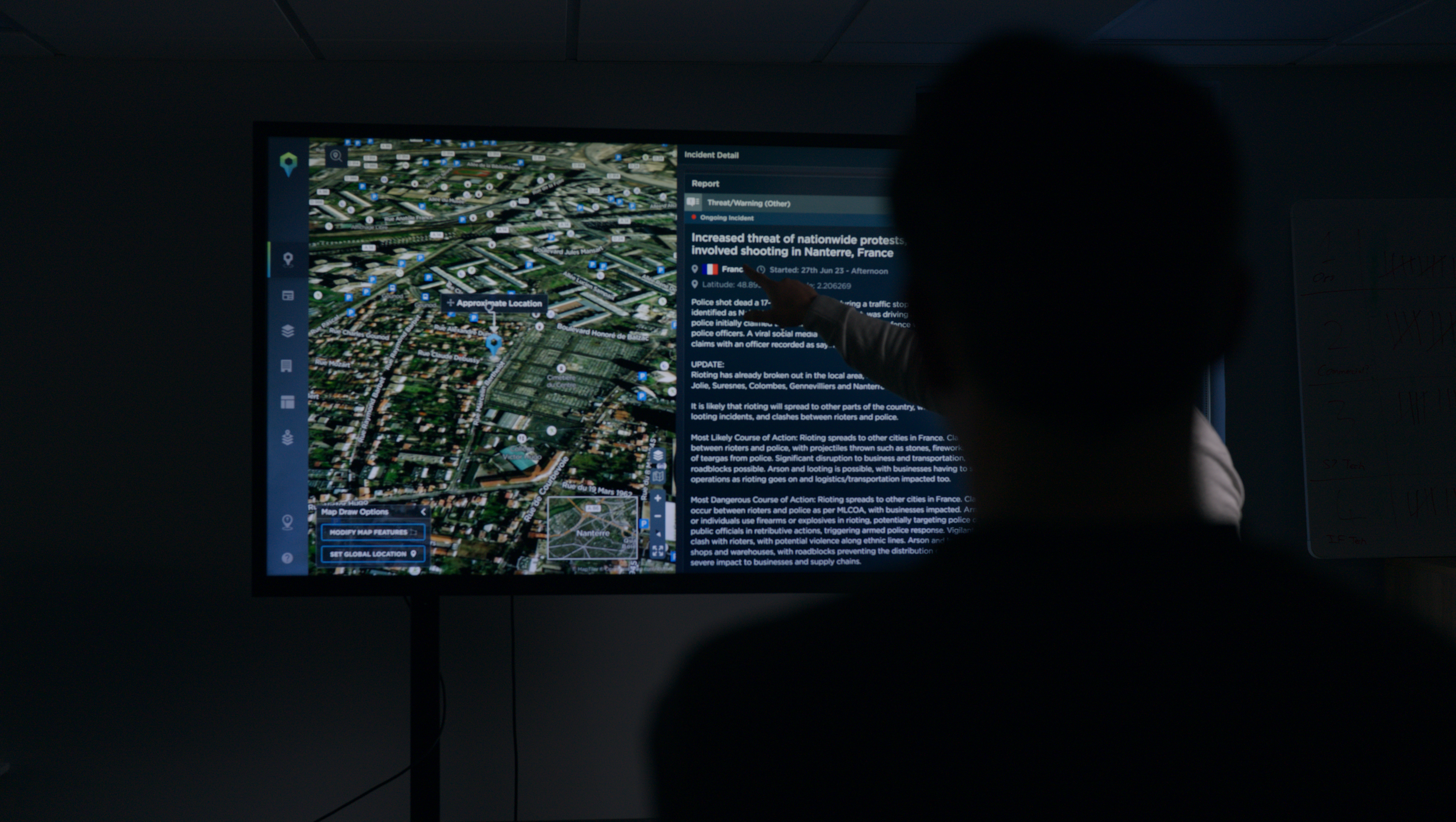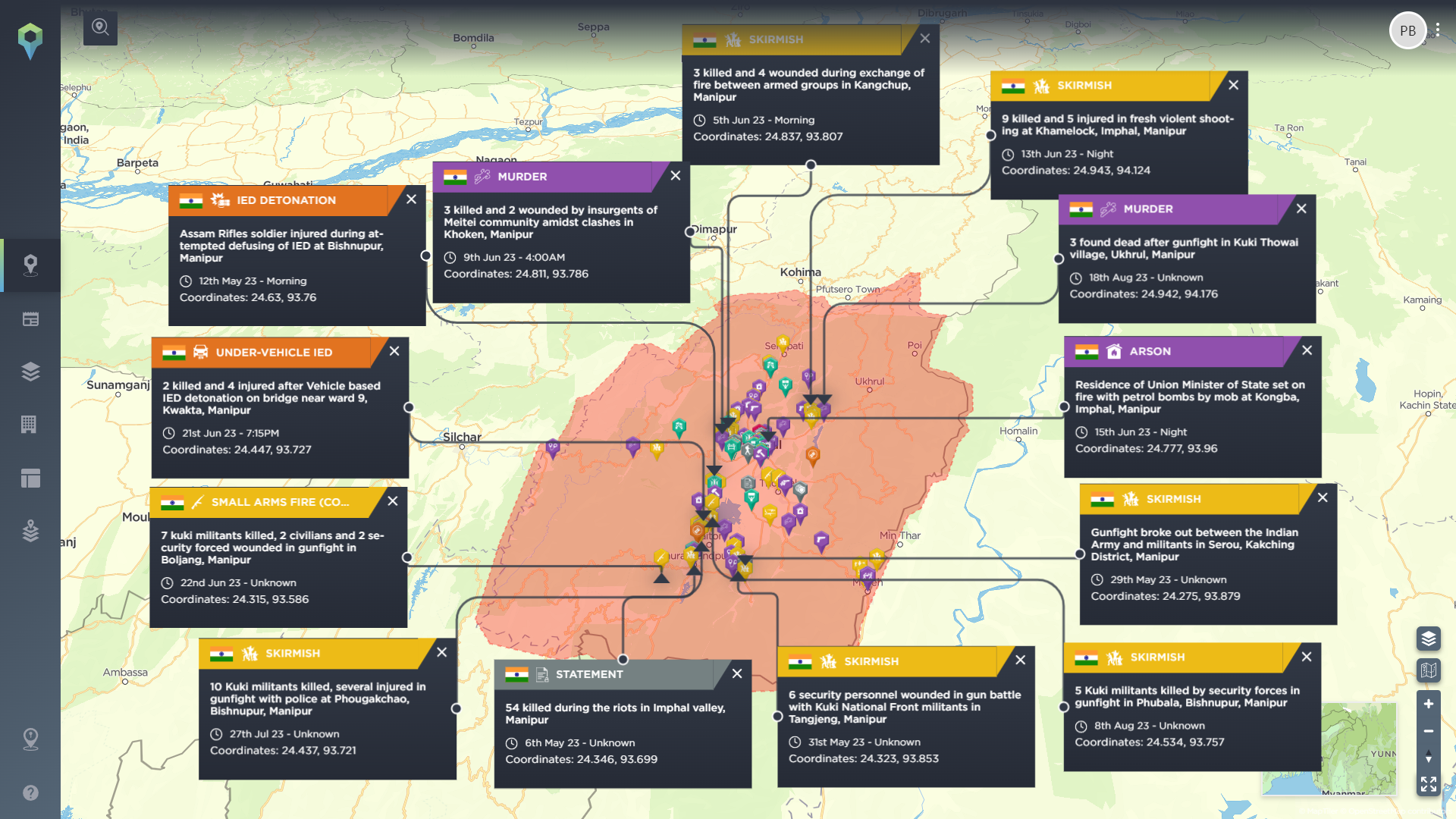What’s happening in Indian politics? Mosque demolitions, communal violence and a precarious religious landscape
From the consecration of the Ram Mandir to the demolition of mosques, the religious landscape of India is undergoing seismic shifts, stirring communal tensions and political upheaval. This blog examines the ramifications of recent developments and anticipates the road ahead in Indian politics, communal relations - and potential violence.
Executive Summary
- Hindu religious processions have been affected by disruptive action.
- Demolitions of Islamic religious sites in other areas have sparked riots.
- Attacks on processions have been small-scale, but Haldwani riots show potential for escalation.
- The Ram Mandir consecration is tied to Indian politics, and communal tensions are high leading into the 2024 General Election.

Background
The site of the Babri Masjid (demolished in 1992) in Ayodhya has been a politically charged issue in Indian politics for years. The construction of a Mandir on the former site of the Masjid has long been a totemic issue for Hindu nationalist parties, such as the ruling Bharatiya Janata Party (BJP), and in 2019, the Supreme Court of India ruled in favour of the construction of a Mandir on the site. On the 22nd January 2024, the Ram Mandir was consecrated in a ceremony attended by Prime Minister Narendra Modi. While the publicity of the consecration ceremony could be seen as a move to energise the BJP base for the upcoming general election, it can also be argued to have increased tensions between Hindu and Muslim communities, primarily in northern states such as Gujarat, Utter Pradesh and Uttarakhand.
Low-level incidents of communal violence followed the consecration, with Hindu religious processions being targeted. These attacks are generally not complex or impactful, with a small number of people wounded. However, a larger riot following the demolition of a Mosque in Haldwani indicates that there is now an especially charged environment surrounding Mosque demolitions and that there exists the possibility for escalation in the future. Smaller demonstrations and religiously charged assaults also indicate that such escalation may occur without explicit connections to political parties or religious movements.

What has happened?
Attacks on religious processions in the days leading up to and following the consecration were recorded in Gujarat, Uttar Pradesh and Uttarakhand, with an attack in Kheralu developing into a clash with the police in which at least three people were wounded. The attacks are not reported to have involved firearms or led to fatalities. In the Kheralu incident, as well as similar procession attacks in the Padra area of Gujarat and the Mira Bhayandar area of Maharashtra, the affected processions were being held by followers of Ram, the Hindu god central to the Ram Mandir. The affected states were primarily northern, and similar violence was not reported in southern states such as Karnataka, where rallies were forbidden in the period surrounding the consecration. Smaller acts of violence with low impact were still reported in southern states, as Karnataka saw a demonstration calling for the imprisonment of a Muslim who had posted material online that was critical of the Ram Mandir, and a religiously-motivated assault on a taxi driver in Maharashtra was reported following the consecration.
Two Mosques are known to have been demolished in the period following the consecration, one in Delhi and one in Haldwani, both officially under the auspices of an ‘anti-encroachment drive.’ The demolition of the Mosque and connected Madrasa in Haldwani notably sparked a riot on the 8th of February 2024 in which at least four people were killed and over a hundred people wounded. The riot led to the government of Uttarakhand declaring a curfew in the affected areas and issuing a shoot-on-sight order to the police. The Haldwani riot is the most notable incident of communal violence to have immediately followed the Ram Mandir consecration. The nature of the low-level attacks and the riots indicates that violence along religious lines can flare up and escalate suddenly and violently but is more likely to do so in areas with an inciting factor, such as religious processions or Mosque demolitions.

What next?
The Indian general election is to be held from 19th April to 1st June 2024. With this in mind, communal and religious tensions could play strongly into Indian politics over the coming weeks and months, with the consecration and, to a lesser extent, the moves to demolish local Mosques both likely to energise Hindu nationalist and Hindutva politics. Even if no further demolitions occur in this period, there is an elevated risk of election-related violence and low-level attacks on Hindu religious processions. Processions and events related to the worship of Ram should be considered especially at-risk. Demonstrations and acts of vigilantism from both Hindu and Islamic religious communities are also a strong possibility.
Demolitions for various reasons are likely to continue; as of the time of this writing, another Mosque, the Sunehri Bagh Masjid in Delhi, has been scheduled for demolition. Officially, the Sunehri Bagh site is being demolished to ease traffic congestion. However, it is likely that more politically charged narratives will dominate the discussion surrounding the demolition. As the violence in Haldwani demonstrates, responses to Mosque demolitions can escalate to violence suddenly. It is also possible that low-level incidents of communal violence may provoke a similar escalation.



